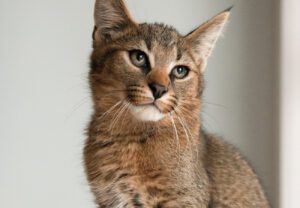Key Takeaways
- The Chausie hybrid cat breed is a cross between domestic cats and jungle cats, known for its unique appearance and playful nature.
- Initial purchase costs for a Chausie can range from $1,000 to $2,000, with ongoing maintenance costs including high-quality food and regular vet visits.
- Legal ownership of Chausies varies by region, with some areas requiring special permits due to their wild ancestry.
- The F1 to F5 generations impact a Chausie’s size and behavior, with F1 being closest to the wild ancestor and F5 being more domesticated.
- Chausies can make good house pets for experienced cat owners, but they require lots of attention and a suitable environment.
Chausie Hybrid Cat Breed: An Introduction
The Chausie hybrid cat is a fascinating blend of domestic and wild characteristics, making it a unique addition to any home. Originating from a mix between domestic cats and the jungle cat (Felis chaus), these cats boast a striking appearance and a spirited demeanor. But owning a Chausie is not just about admiring its beauty; it requires a commitment to understanding its needs and characteristics.
What Sets Chausies Apart?
Chausies are known for their athletic build and expressive eyes. They have a short coat that comes in various shades, including brown ticked tabby, solid black, and grizzled tabby. But beyond their looks, it’s their playful and energetic nature that truly sets them apart. Chausies love to explore and interact, making them ideal for families who can provide ample playtime and stimulation.
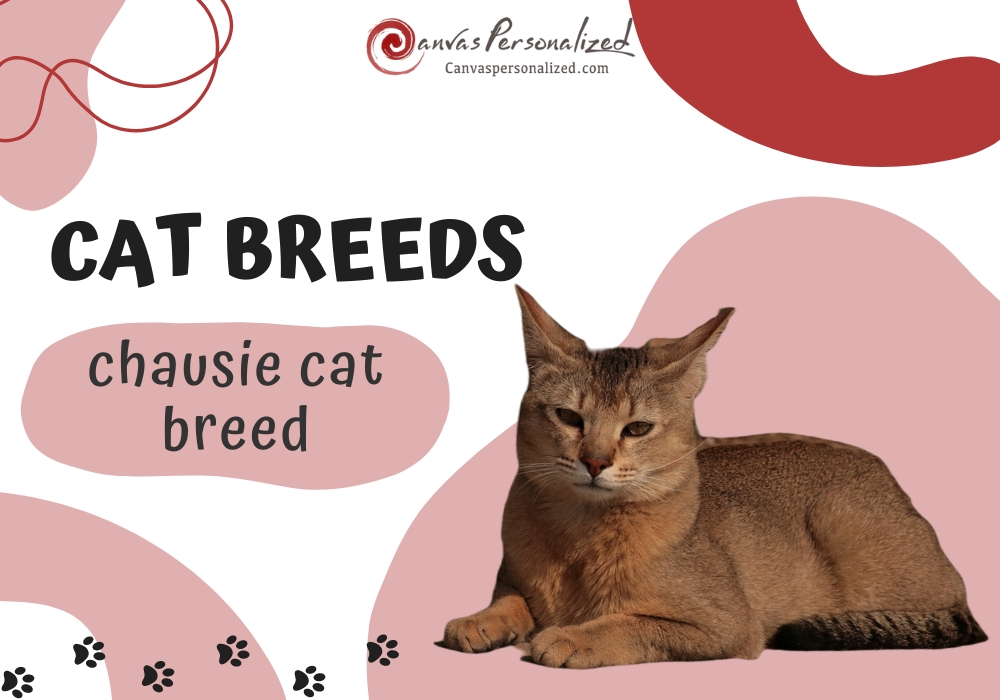
“Chausie Cat Breed: Wild-Looking With …” from blog.canvaspersonalized.com and used with no modifications.
Brief History and Origins
The Chausie breed has its roots in ancient Egypt, where domestic cats naturally interbred with jungle cats. This crossbreeding resulted in a unique hybrid that carried traits from both species. Over time, breeders selectively bred these hybrids to create the Chausie we know today. Recognized by the International Cat Association (TICA) in 2013, Chausies have gained popularity among cat enthusiasts for their exotic allure and engaging personality.
Understanding Hybrid Breeds
Hybrid breeds like the Chausie are born from the union of a domestic cat and a wild feline ancestor. This blend often results in cats that exhibit both domestic and wild behaviors. Understanding this hybrid nature is crucial for potential owners, as it influences everything from the cat’s temperament to its care requirements. For instance, while Chausies are generally affectionate, their wild ancestry can make them more independent and adventurous compared to typical house cats.
Cost and Maintenance of Owning a Chausie
Owning a Chausie can be a rewarding experience, but it’s important to consider the financial and time commitments involved. From initial purchase costs to ongoing maintenance, understanding these factors will help ensure a happy life for both you and your feline friend.
Initial Purchase Cost and Factors
The initial cost of purchasing a Chausie can range from $1,000 to $2,000. This price is influenced by factors such as the cat’s generation (F1 to F5), the breeder’s reputation, and the cat’s lineage. When considering a purchase, it’s essential to research breeders thoroughly to ensure you’re getting a healthy and well-socialized kitten.
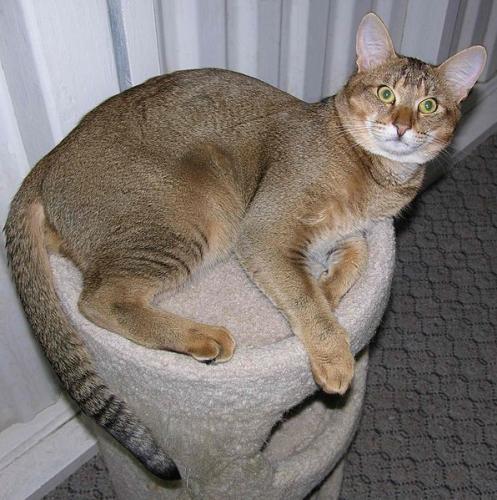
“Chausie | Facts and Information | VioVet” from www.viovet.co.uk and used with no modifications.
Day-to-Day Care Requirements
Chausies require a balanced diet rich in protein to support their active lifestyle. High-quality cat food, regular vet check-ups, and plenty of toys for mental stimulation are essential components of their daily care. Additionally, Chausies need ample space to roam and explore, so a home with access to a secure outdoor area is ideal. For more detailed information, check out this Chausie Mixed Cat Breed Information.
Health and Dietary Needs
While Chausies are generally healthy, they can be prone to intestinal issues. Providing a diet that mimics their natural nutritional needs can help prevent such problems. This means focusing on high-protein, grain-free options and consulting with a veterinarian to tailor a diet plan that suits your Chausie’s specific health requirements.
Long-Term Costs to Consider
- Annual vet visits and vaccinations: $100-$300
- High-quality cat food: $300-$600 per year
- Toys and enrichment activities: $50-$100 per year
- Unexpected medical expenses: Varies
Beyond these regular expenses, it’s wise to set aside funds for unexpected medical issues or emergencies. Pet insurance can be a valuable investment to help manage these potential costs.
Legalities Surrounding Chausie Ownership
Before bringing a Chausie into your home, it’s crucial to understand the legal implications of owning a hybrid cat. Laws and regulations vary significantly by region, and being informed can prevent potential legal issues down the road.
Regulations by Country and Region
In some countries, hybrid cats like the Chausie are subject to specific regulations due to their wild ancestry. For instance, certain regions may require permits or have restrictions on owning first-generation hybrids. It’s important to check local laws and consult with authorities to ensure compliance with any legal requirements.
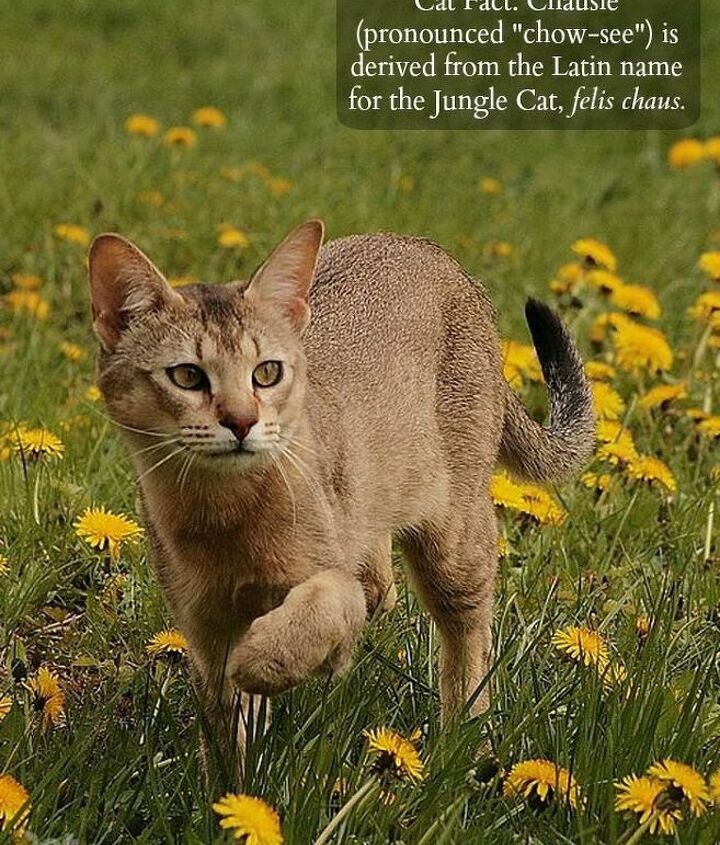
“Chausie Cat Breed Information and …” from www.petguide.com and used with no modifications.
Licensing and Permits Required
When it comes to owning a Chausie, understanding the need for licenses and permits is crucial. In some areas, hybrid cats fall under the category of exotic pets, which may require special permits. These permits ensure that the owner is capable of providing a suitable environment for the animal. To get these permits, you typically need to demonstrate your ability to care for such a pet, which might include home inspections or providing proof of adequate space and resources.
Additionally, some regions require microchipping for identification purposes, ensuring that the pet can be easily traced back to its owner. This is a protective measure not just for the owner, but also for the pet, ensuring its safety and well-being. Therefore, before bringing a Chausie home, it’s important to contact local authorities or wildlife agencies to understand the specific requirements in your area.
Potential Legal Challenges
Besides the need for permits, potential legal challenges can arise from owning a Chausie. For instance, if a Chausie escapes and causes damage or harm, the owner might face liability issues. This is because hybrids, due to their wild lineage, can sometimes exhibit unpredictable behaviors, similar to the challenges faced when adopting a Brittany Spaniel.
Moreover, if you live in a region with strict laws against owning hybrids, you might face fines or be required to rehome your pet. Therefore, it’s essential to be fully aware of all legal implications before deciding to own a Chausie. Being proactive and informed can save you from potential legal headaches and ensure a harmonious relationship with your exotic pet.
Influence of F1 to F5 Generations on Chausie Traits
The F1 to F5 generations in Chausies refer to how far removed they are from their wild ancestors. This generational difference plays a significant role in determining their physical and behavioral traits. Understanding these nuances is key to choosing the right Chausie for your home.
F1 Chausies are the first generation and are closest to their wild ancestor, the jungle cat. As a result, they might exhibit more wild-like behaviors and require more experienced handling. On the other hand, F5 Chausies are more domesticated and tend to have traits that align more closely with typical house cats.
Generation Overview: What Does F1 to F5 Mean?
F1 stands for the first filial generation, meaning these cats are direct offspring of a domestic cat and a jungle cat. They are typically larger and may have more pronounced wild instincts. As you move down to F5, these cats are several generations removed from the wild ancestor, meaning they are more accustomed to domestic life and generally easier to handle.
Each generation comes with its own set of characteristics. For example, F2 and F3 Chausies are often a balance between the wild and domestic traits, making them popular choices for those who want a hint of the wild without the full commitment. It’s important to assess your own experience and lifestyle when choosing which generation fits best with your home environment.
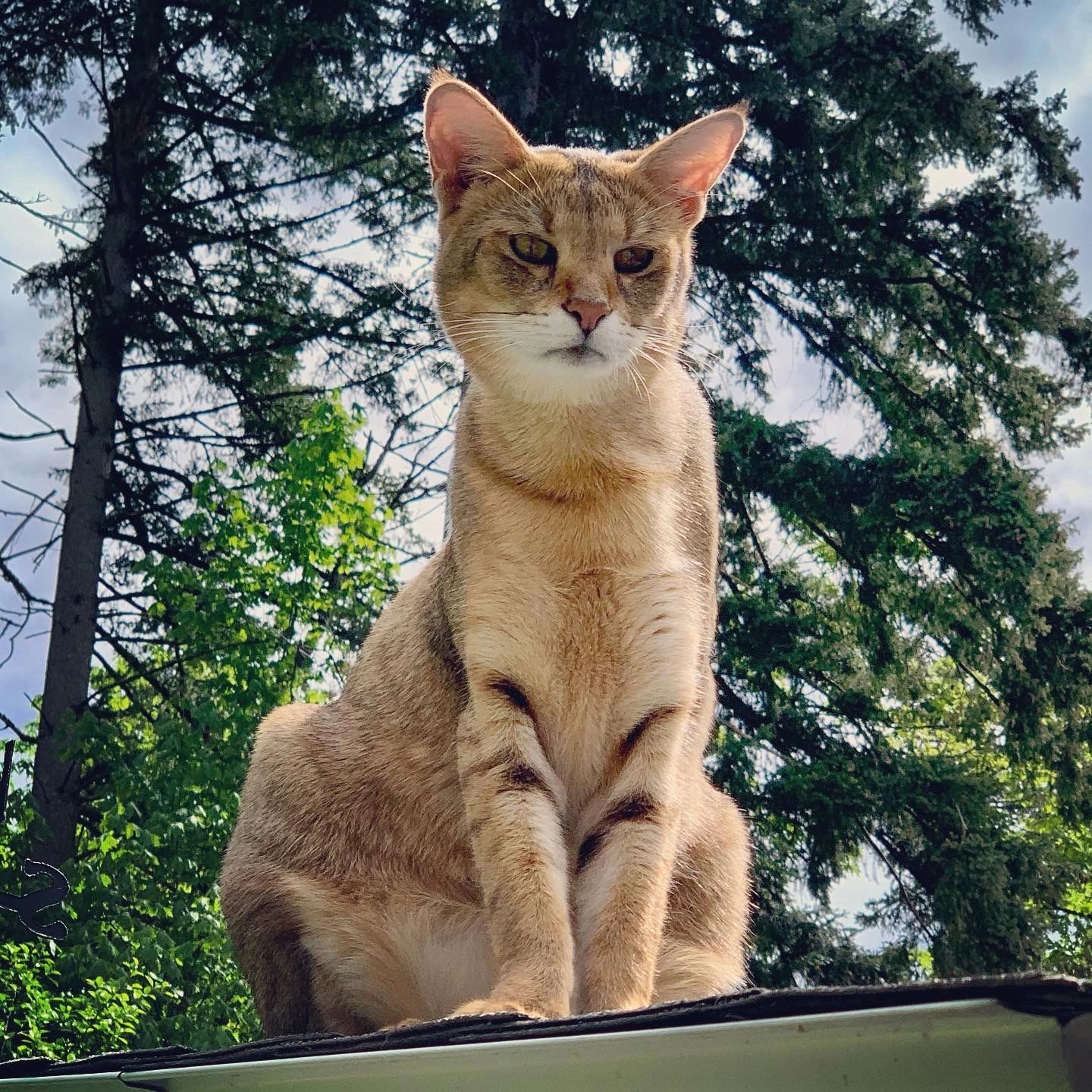
“Chausiecats” from chausiecats.com and used with no modifications.
Impact on Physical Size
The physical size of a Chausie can vary significantly depending on its generational status. F1 Chausies tend to be larger, often weighing between 15 to 30 pounds, thanks to their closer genetic ties to the jungle cat. This size can make them appear more formidable and exotic. For more detailed information, you can check out the Chausie Mixed Cat Breed Information.
As you progress to F5, the size typically reduces, aligning more closely with that of a standard domestic cat. This makes them easier to manage in a typical household setting, especially if space is a consideration. Regardless of size, all Chausies maintain a muscular build and an athletic appearance.
Behavioral Tendencies Across Generations
Behaviorally, F1 Chausies might exhibit more wild instincts, such as a higher prey drive or a need for more stimulation. They might not be as affectionate as their more domesticated counterparts and could require more time and patience to train and socialize. For a comparison, you can explore the Maine Coon cat’s personality and see how it differs from the Chausie.
Conversely, F5 Chausies are usually more laid-back and sociable, often enjoying human interaction and companionship. They are more likely to adapt well to a family environment, making them suitable for households with children or other pets. Understanding these behavioral tendencies can help you decide which generation aligns best with your lifestyle and expectations. For more information on the breed, check out this Chausie Mixed Cat Breed Information.
Pros and Cons of Having a Chausie as a House Pet
Owning a Chausie can be a rewarding experience, but it’s essential to weigh the pros and cons to ensure it’s the right fit for you and your family. While these cats offer unique companionship, they also come with their own set of challenges.
Advantages of Chausie Companionship
Chausies are known for their intelligence and playful nature, making them engaging companions. They are highly interactive and enjoy games that challenge their minds and bodies. This makes them ideal for active families who enjoy spending time playing and bonding with their pets.
Moreover, their exotic appearance can be a point of pride for owners, as Chausies are often admired for their striking looks and graceful movements. Their unique mix of wild and domestic traits can also provide a fascinating insight into feline behavior, offering an enriching pet ownership experience.
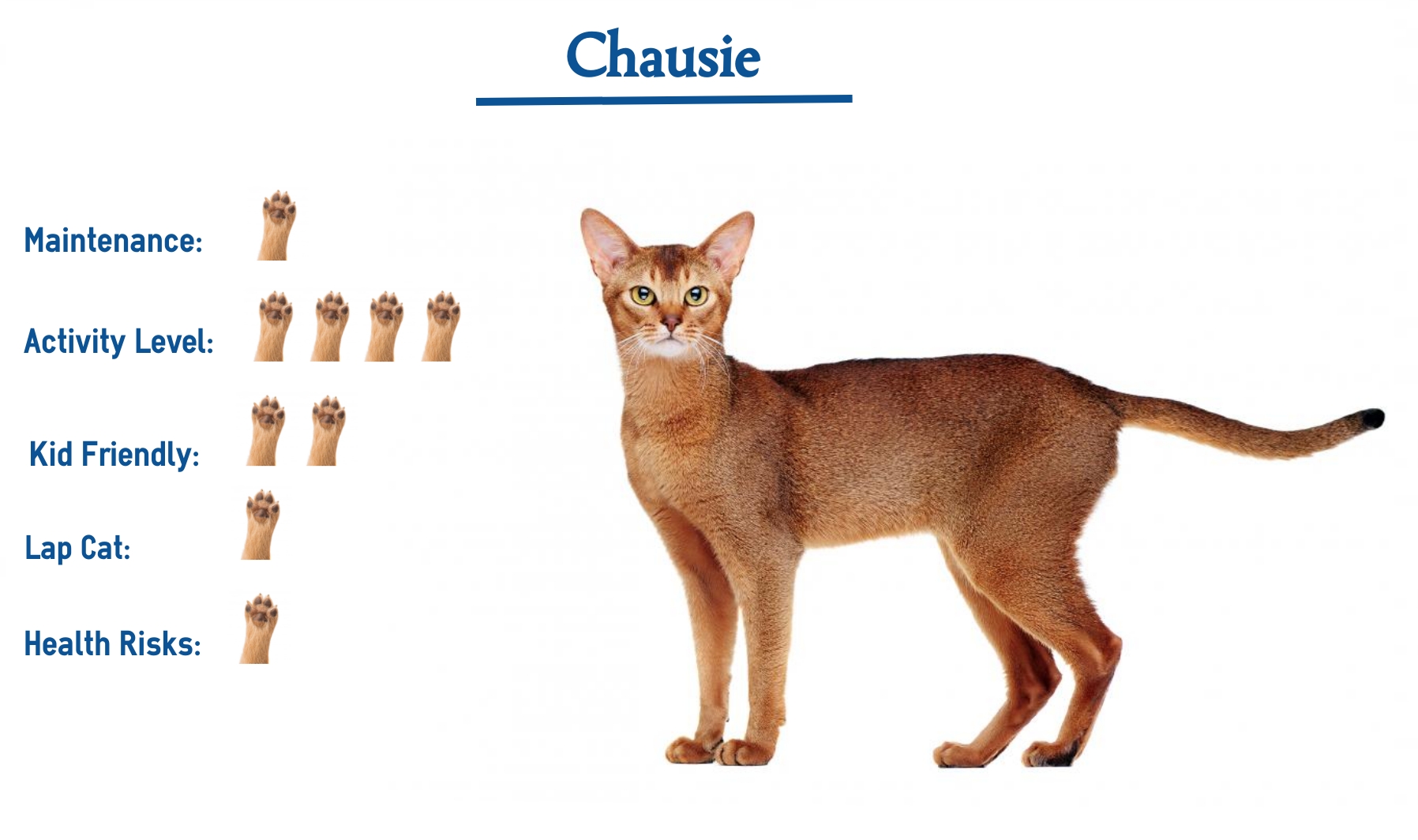
“Chausie Cat Breed… Everything You Need …” from indulgeyourpet.com and used with no modifications.
Challenges and Cons of Ownership
Despite their many advantages, Chausies are not without challenges. Their high energy levels mean they require plenty of exercise and mental stimulation, which can be demanding for owners who are not prepared. Without adequate outlets for their energy, Chausies can become bored and destructive.
Additionally, their wild ancestry can sometimes lead to behavioral issues, such as a strong prey drive or territorial tendencies. These behaviors might not be suitable for all households, particularly those with small children or other vulnerable pets.
Ideal Living Environment for a Chausie
Chausies thrive in environments that offer plenty of space to explore and play. A home with a secure outdoor area is ideal, allowing them to satisfy their curiosity and expend energy safely. Inside, providing climbing structures, interactive toys, and puzzle feeders can help keep a Chausie entertained and content.
Furthermore, Chausies do best in homes where they receive plenty of attention and engagement from their owners. If you can provide a stimulating environment and are willing to invest time in their care and training, a Chausie can be a wonderful addition to your family.
Choosing Between Breed Rescue Adoption and Reputable Breeder
When considering bringing a Chausie into your home, you have the option of adopting from a breed rescue or purchasing from a reputable breeder. Each option has its benefits and considerations, and it’s important to weigh them carefully.
Adopting from a rescue can be a rewarding experience, offering a Chausie a second chance at a loving home. However, it may come with uncertainties about the cat’s background and health. On the other hand, purchasing from a reputable breeder ensures you know the cat’s lineage and health history, but it may come at a higher cost.
Benefits of Adopting a Rescue Chausie
Adopting a rescue Chausie provides a home for a cat in need, which can be incredibly fulfilling. Rescue organizations often have adult cats, meaning you can better assess their temperament and health. Additionally, adoption fees are generally lower than purchasing from a breeder, making it a more budget-friendly option.
Rescue organizations also provide support and resources to help you integrate your new pet into your home, ensuring a smoother transition for both you and the Chausie. By choosing to adopt, you contribute to the welfare of animals in need and help reduce the number of cats without homes.
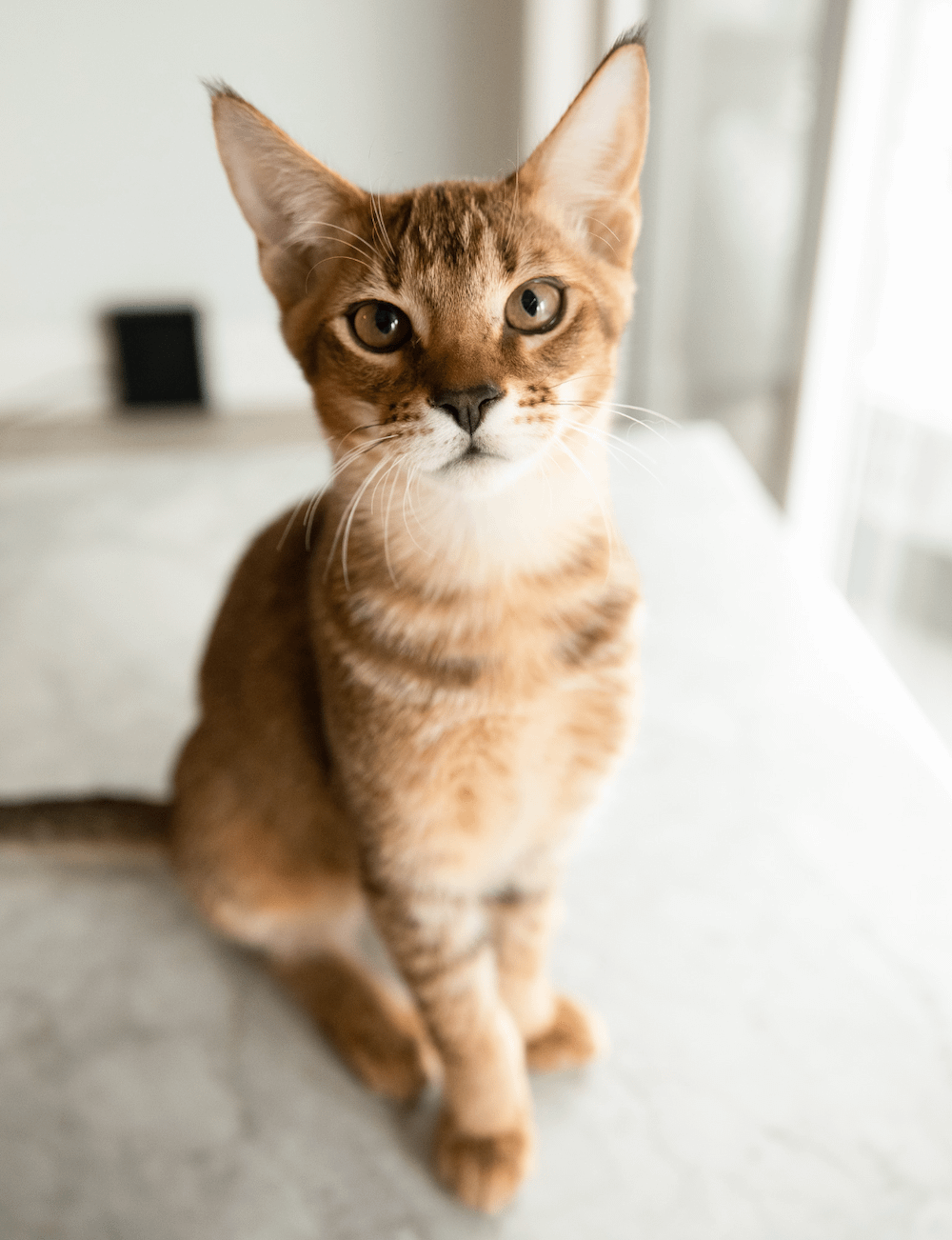
“Chausie Cat Breed Profile | Litter-Robot” from www.litter-robot.com and used with no modifications.
Finding a Trustworthy Breeder and Avoiding Shady Kittymills
When searching for a Chausie, finding a reputable breeder is crucial. A trustworthy breeder will prioritize the health and well-being of their cats over profits. They will provide you with detailed information about the cat’s lineage, health history, and care requirements. To avoid shady operations, always visit the breeder’s facility if possible. This allows you to see the living conditions and meet the kitten’s parents, giving you insight into the environment in which your potential pet was raised.
Additionally, reputable breeders often have waiting lists and conduct interviews to ensure their kittens go to suitable homes. This diligence is a positive sign that the breeder cares deeply about the future of their cats. Be wary of breeders who offer kittens at unusually low prices or who cannot provide verifiable health records. These may be indicators of a kitten mill, where the focus is on quantity over quality.
Tips for Identifying Ethical Breeding Practices
Ethical breeders will be transparent about their breeding practices and eager to share their knowledge. Look for breeders who are members of recognized cat associations, as these organizations often have strict standards for breeding practices. A good breeder will also ask you questions about your lifestyle and experience with cats to ensure a good match.
Furthermore, ethical breeders will provide a written contract outlining the responsibilities of both parties, including health guarantees and return policies if the cat cannot be kept. This contract demonstrates the breeder’s commitment to the cat’s welfare even after it leaves their care.
Final Thoughts on Chausie Ownership
Owning a Chausie can be a deeply rewarding experience for those prepared for the commitment. These cats offer a unique blend of wild beauty and playful companionship, making them a fascinating addition to any home. However, their needs and characteristics require careful consideration to ensure a harmonious relationship.
Synthesizing the Key Considerations
Before deciding on a Chausie, assess your ability to meet their physical and mental needs. Consider the space you have available, your lifestyle, and whether you can provide the attention and care they require. Understanding the legalities and costs involved is also essential to ensure you’re fully prepared for the responsibilities of ownership.
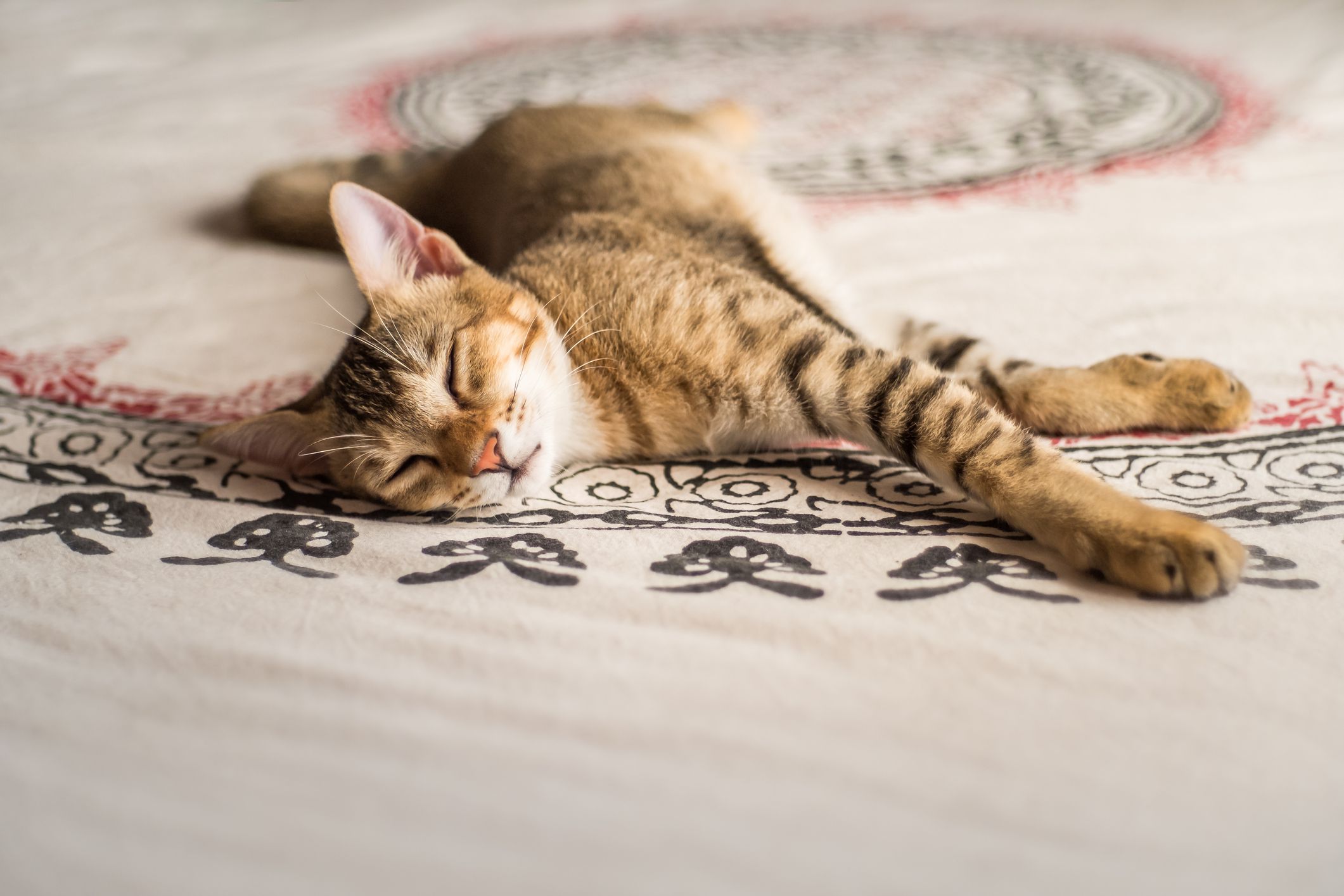
“Chausie: Cat Breed Profile …” from www.thesprucepets.com and used with no modifications.
Making an Informed Decision
Ultimately, the decision to bring a Chausie into your home should be made with careful thought and planning. By doing thorough research, consulting with experts, and reflecting on your capacity to care for such a unique pet, you can make an informed choice that benefits both you and your future feline friend.
Remember, the commitment to a pet is a long-term one, and ensuring a Chausie is the right fit for your household will lead to a fulfilling and joyful companionship.
Frequently Asked Questions (FAQ)
Below are some common questions prospective Chausie owners often have. These can help clarify any lingering doubts or concerns you might have about owning this exotic breed.
Are Chausies legal to own everywhere?
Chausies are not legal to own everywhere due to their hybrid status. Some regions have strict regulations or require special permits for hybrid animals. It’s important to check local laws and regulations before acquiring a Chausie to ensure compliance.
How much time and attention do Chausies typically require?
Chausies require significant time and attention due to their active and social nature. They thrive in environments where they receive plenty of playtime, mental stimulation, and interaction with their human companions. Daily engagement is essential to prevent boredom and behavioral issues. If you’re considering adopting a Chausie, you might also be interested in learning about the Maine Coon cat adoption as they share some similar traits.
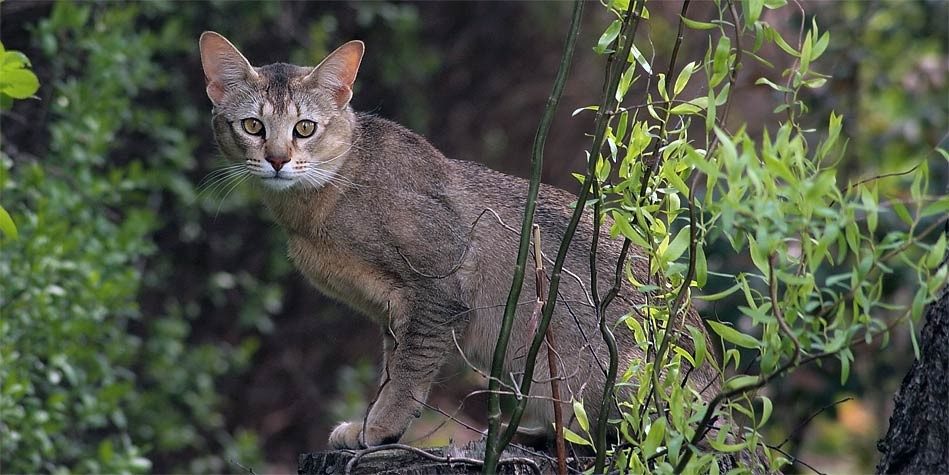
“Chausie – intelligent and active cat …” from dinoanimals.com and used with no modifications.
What are the health concerns associated with Chausie cats?
While generally healthy, Chausies can be prone to intestinal issues, which can be managed with a proper diet and regular veterinary care. Providing high-quality, protein-rich food and maintaining routine health check-ups can help mitigate potential health concerns.
How do I find a reputable Chausie breed rescue group?
Finding a reputable Chausie breed rescue group involves research and reaching out to cat rescue organizations that specialize in hybrids or exotic breeds. Online forums and social media groups dedicated to Chausie enthusiasts can also provide valuable leads and recommendations. For those interested in other breeds, exploring resources like Maine Coon cat adoption guides can also be insightful.
What should I expect from a Chausie’s temperament?
Chausies are known for their energetic and playful temperament. They are highly intelligent and curious, often seeking out interaction and exploration. While they can be affectionate, they also retain some independent traits from their wild ancestry, making them best suited for experienced cat owners who understand their unique needs.
By understanding these aspects of Chausie ownership, you can better prepare for the journey of welcoming one into your home, ensuring a positive experience for both you and your new feline companion.
The Chausie hybrid cat breed is known for its unique characteristics and requires specific care and maintenance. Understanding the cost and legalities associated with owning this breed is crucial. Additionally, the F1 to F5 generation influences both the size and behavior of the Chausie, making it important for potential owners to consider these factors. For those contemplating if a Chausie is a good house pet, weighing the pros and cons is essential. Whether you choose to adopt from a breed rescue or opt for a reputable breeder, making an informed decision is key to ensuring a harmonious relationship with your new pet.
